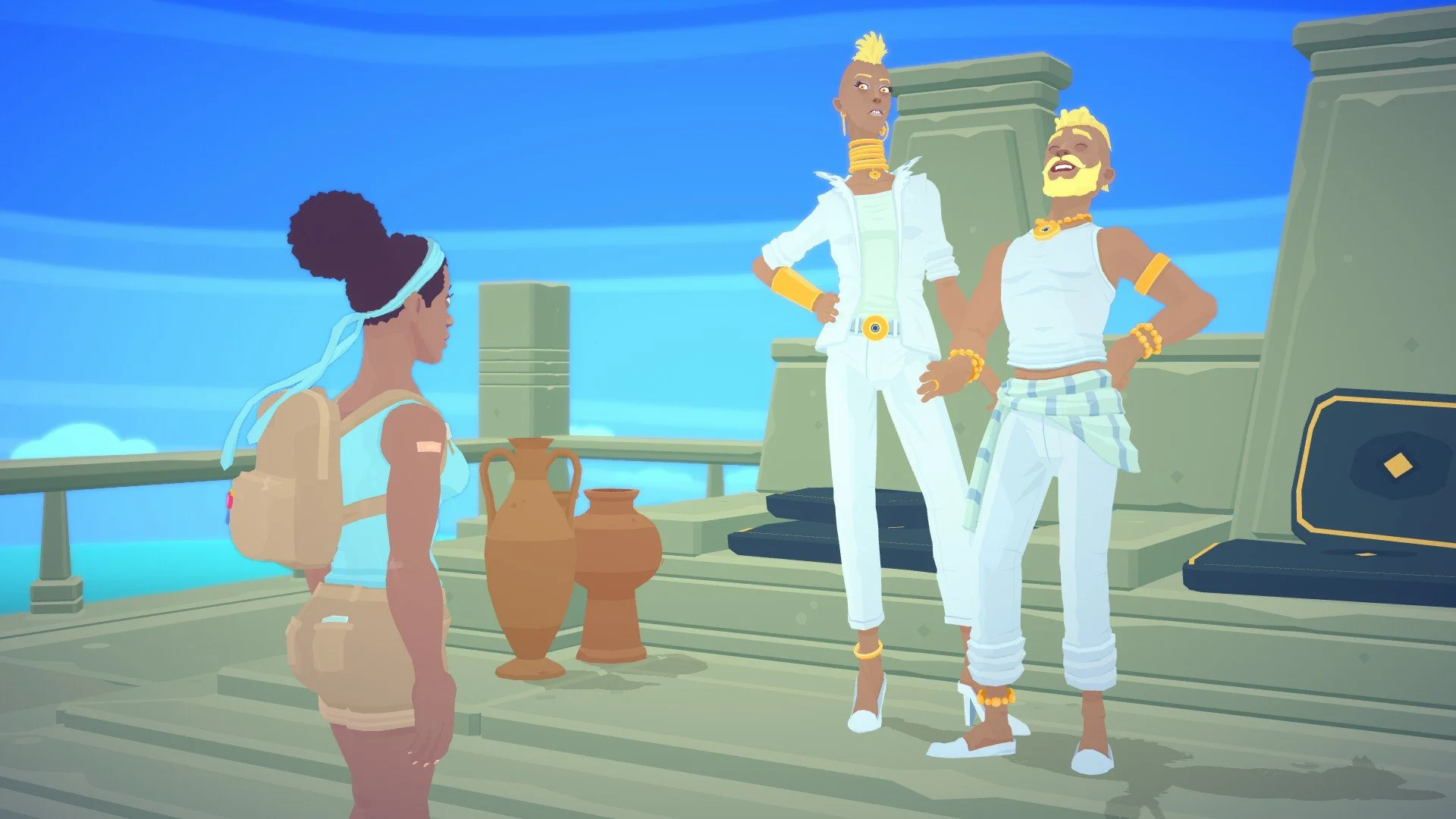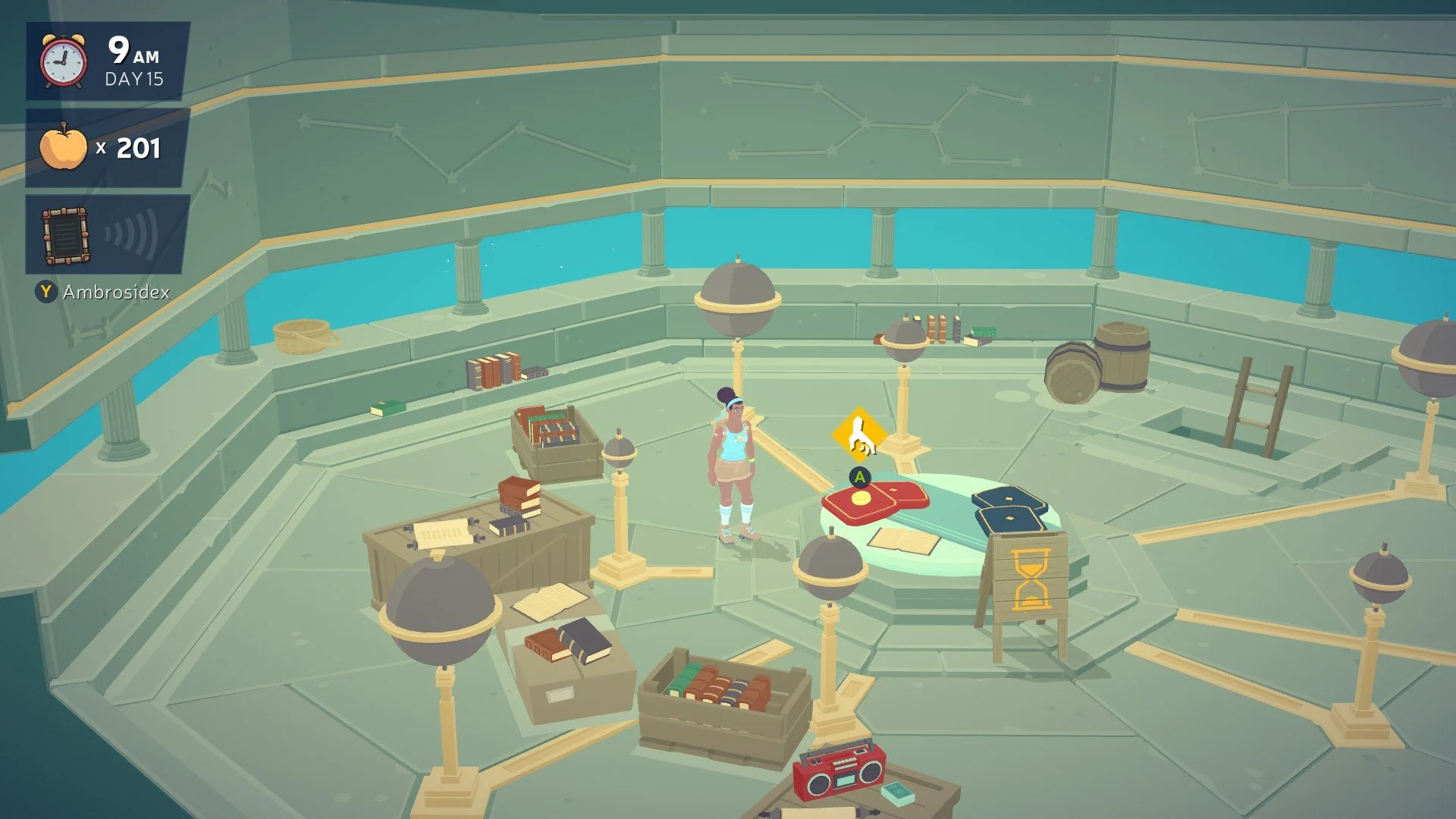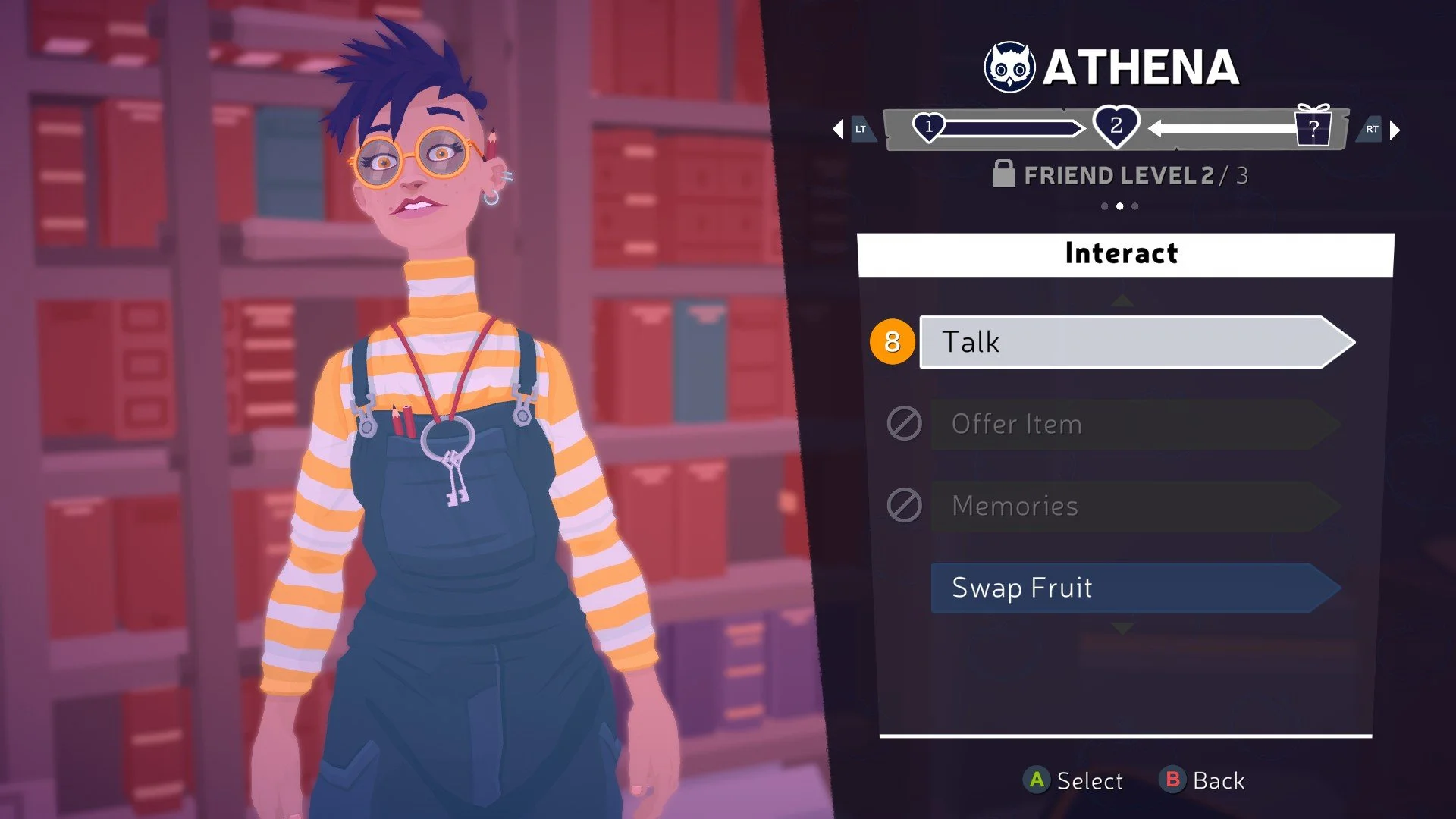Mythwrecked: Ambrosia Island - Review
Overview
Who: Developed by Polygon Treehouse and published by Whitethorn Games
What: You’re shipwrecked on a lost mythical island. As backpacker Alex, you must befriend the forgotten gods of Greek mythology and restore their memories. Explore the dynamic island and its story sandbox to build new friendships, solve the mystery and save the gods.
When: 5th December 2024
Where: Available on Playstation, Xbox, Switch, and PC via Steam
At a Glance:
+ Charming, gentle, cosy gameplay
+ A great reimagining of Greek gods – both in style and personality
+ Lots to see and do
- Not much of a challenge
- Alex’s impact is a little underwhelming
You’ll love this if you like…
Cosy games
Fetch quests
Ancient Greek mythology
Chill vibes
Credit: Polygon Treehouse
Review
I’ve been struggling with a lot of overwhelm lately, and have found myself wishing for a game that didn’t expect too much from me but wasn’t totally mindless, either. Enough to gently distract, but nothing so heavy you couldn’t watch a film in the background or process your day. I’ve got a bunch of cozy games in my library, but for the most part if you want to avoid lots of reading, you have to love farming. Stardew Valley, My Time At Sandrock, even Animal Crossing introduced it in New Horizons: the children clearly yearn for the soil.
All this to say that Mythwrecked: Ambrosia Island couldn’t have come at a better time. It’s a cozy game through and through: lovely to look at, easy to pick up and play, a rolling, gentle narrative that gives you space to pause if needed. It’s just nice.
The vibe
The game lends itself to long winter evenings with a hot drink, despite its island setting. It’s the kind of game you can play with your kids, your spouse, or your cat. The stakes are low, the island has been there for god knows how long (except they don’t, they’ve got amnesia), so you’re there to nudge things back toward where they should be without a time limit or pressure from outside. The story unfolds the more you explore, and encourages you to take note of objects, translations, paths, and doors that you might be able to open later.
The gods of ancient Greek mythology have been completely reimagined for the game. It’s like they've been broken down into their most basic legends and traits and built back up again, forgetting all the dramatic oil paintings and theatre costumes that have informed generations of accepted understanding, turning them into something we can identify with and relate to today. None of them look out of place (even Posiedon and his green-blue skin), because, instead of archetypes that were relevant in ancient Greece, they’re archetypes we know now. Zeus is a bit of a tech bro exhibiting some slightly manic party-boy energy, while Athena lives in a library as a bookish, overall-wearing academic. The first reveal of each of them was a joy, and their different personalities were so charming I’d have run across the island a hundred times just to help them out.
Credit: Polygon Treehouse
The gameplay
Using your Ambrosidex, a mysterious tablet that holds your map alongside all your collected goods and goals, you’ll follow radar signals to uncover items for each of the gods. In their amnesiac states, they have misplaced items under the sand, in boxes, or in crumbling walls, and it’s your job to find them and reunite them with their owners. In exchange, your friendship level will rise, the gods will regain their memories, and you’ll finally be able to solve the mystery behind Ambrosia Island.
Over time you gather more tools from your new friends, giving you the ability to uncover mosaics, collect items for your home, sit and listen to cassette tapes, unlock sealed doors, and traverse bridgeless water. The island overflows with Ambrosia Fruits, a collectible that serves as an abundant currency, and sweet little crabs, birds, and lizards who react to you in different ways.
Matching items to gods is about as much challenge as the game offers. It’s more of a jigsaw puzzle than a cryptic crossword. You know the pieces all fit and everything must tie together, but your job is to let the wind carry you and slowly place everything back where it should be. Sometimes you can’t quite reach something, you can’t work out how to get across the sea, or how to translate an ancient carving, but in time you know it’ll all make sense. Each characters’ quests intersect and slot together, meaning you’ll often come to find one door closed but another having sprung open. You run through that metaphorical door, do that quest, and by the time you get back, the old one has opened up again.
If you’ve got a somewhat canine-streak that seeks to collect and fetch, Mythwrecked has that covered. The whole premise is a giant fetch-quest sprinkled with smaller ones, embedded in a friendship system where you unlock further fetch-quests. You will spend 90% of your time running around and picking things up. It really isn’t a negative, unless you already loathe that format – Mythwrecked never feels stale because of the constant back and forward between characters’ desires and gradual mystery unravelling. Each item you find makes narrative sense and fits within a beautifully designed UI that allows you to explore items, lore, and friendships on-the-go.
Although you’ll have run around doing various tasks like getting fountains flowing again and powering lights around the island, the actual visual effect of these chores is a little underwhelming. It would have been nice to have seen a more transformative ending, both in terms of the island’s aesthetic “health” and Alex’ personal journey. She’s a strong and appealing protagonist, but she doesn’t quite get her chance to shine. I had expected it to be a little more emotional, perhaps more of a journey, but the conclusion just fell a little flat after I’d worked so hard to fix everything.
That being said, I loved every minute of actual gameplay. There’s just so much to do, despite the island’s size. Mythwrecked is also a beautiful game. For such a tiny team to create something that feels so smooth and responsive, like every inch of the island is alive and inviting you to stay, is an incredible feat. As the game points out, the ancient Greek concept of ‘xenia’ means a practice of hospitality and openness, welcoming strangers as if they were family, and Mythwrecked’s arms are wide open. From the moment you step into this world, the game feels easy to understand, unchallenging and warm. From there, it only offers more.
Mythwrecked won’t ask much from you, only to sit and stay a while, soaking in the atmosphere and exploring to your hearts’ content – an offer you’ll only be too glad to accept.
Credit: Polygon Treehouse
About the author
Miri Teixeira is a video games journalist and co-founder of Working Classicists. You can find out more about her here.





